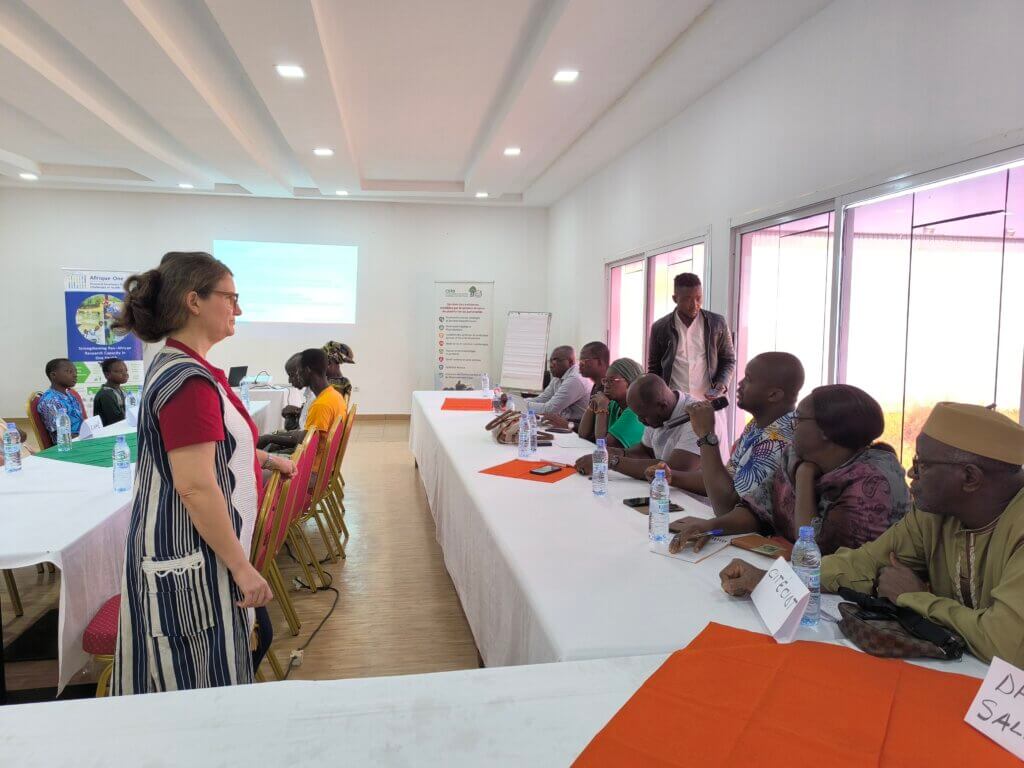Rabies is one of the most dangerous diseases because once symptoms appear, it is fatal in almost all cases. Highly contagious, this disease is transmitted through bites and scratches from infected animals (e.g., dogs, cats, etc.). Transmission is faster from animals to humans. In Côte d’Ivoire, rabies remains endemic and continues to claim victims in several regions of the country.
However, this tragedy can be avoided. Vaccinating dogs is a key solution for preventing the transmission of the disease. In addition, rapid treatment of people who have been bitten, by referring them to a health center offering post-exposure treatment, is essential to stop the spread of this deadly disease.
To achieve the goal of “zero rage” in Côte d’Ivoire by 2030, Afrique One and various partners are engaging communities in the center of the country. As part of this initiative, a co-creation workshop was held on November 15, 2025, in Bouaké with various local stakeholders. It brought together communities from Bouaké neighborhoods such as Ahougnansou, Municipale, Dar-es-Salam, Cité CIDT, and Adjé Yaokro. Representatives of local youth, children, and health professionals from the Institut National d’Hygiène Publique (INHP) and the Direction des Services Vétérinaires in Côte d’Ivoire (DSV) also participated.
The objective of this workshop was to jointly develop a community engagement strategy tailored to the local context, in order to encourage bite victims to quickly visit a health center to receive post-exposure vaccination.
This was stated by Dr. Kathrin Heitz-Tokpa, Program Manager at the Afrique One Consortium based at the Centre Suisse de Recherche Scientifique in Côte d’Ivoire (CSRS), at the opening of the workshop: “The reason we are here is to discuss how we are going to talk to our communities and neighborhoods […] to develop a community engagement strategy that will change people’s behavior and encourage them to go to a health center after exposure (bite).”
This workshop was prompted by numerous cases of human rabies recorded in Côte d’Ivoire, particularly in Bouaké. These revealing cases show that there are gaps in the community. “The disease remains largely unknown, and despite bites and scratches, people do not use health centers or the appropriate channels to access the vaccination they need for protection,” explains Dr. Mathilde Tetchi, head of the INHP’s rabies center. Dr. Tetchi stresses the urgent need for increased awareness and education within communities to prevent rabies and reduce delayed access to care, which is essential for saving lives.
The workshop was co-facilitated by Dr. Kathrin Heitz-Tokpa and Dr. Bognan Koné, both associate researchers at CSRS and members of the Afrique One Consortium. It focused on three key activities:
- An awareness session on rabies, led by Dr. Bérengère Zogbé and Dr. Mathilde Tetchi from the INHP Anti-Rabies Center.
- Group work aimed at identifying local problems and solutions that prevent bite victims from quickly getting to a health center.
- The co-creation of a play with communities, designed to raise public awareness about rabies.
Through group work, the communities made the following proposals:

- Conduct more regular awareness campaigns;
- Organize educational talks in neighborhoods;
- Establish focal points within communities to raise awareness;
- Design clear messages and use the right communication channels, such as WhatsApp groups;
- Build a shelter for stray dogs;
- Create an alert platform to quickly report dog bites;
- Bring health centers closer to the population;
- Introduce penalties for dog owners who do not vaccinate their animals;
- Reduce the cost of rabies vaccinations, or even make them free for children;
- Encourage children to report cases of dog attacks and raise awareness among parents to listen to their children;
- Use theater as a tool to raise awareness about rabies.
Subsequently, a play co-created and performed by the communities, with the support of a director, was developed to raise awareness about the fight against rabies. This play will later become part of the community engagement strategy and will be performed in communities to further raise awareness.
In his closing remarks, Professor Tiembré Issiaka of the INHP thanked all stakeholders for their commitment to the fight against rabies in Côte d’Ivoire.
This workshop is part of the activities of the GAVI PEP-PEV project. It aims to strengthen the fight against serious diseases such as rabies by bringing post-exposure prophylaxis (PEP) vaccines closer to the population. This project is being run in partnership with the CSRS, Swiss Tropical and Public Health Institute (Swiss TPH), and Gavi, with support from the Ivorian Ministry of Health and Public Hygiene through the Institut National d’Hygiéne Publique (INHP) and the Ivorian Ministry of Animal Resources through the Direction des Services Vétérinaires (DSV).
This is the second co-creation workshop. The first was held in Taabo, in central Côte d’Ivoire, in September 2025. Another workshop is planned for December 2025.


